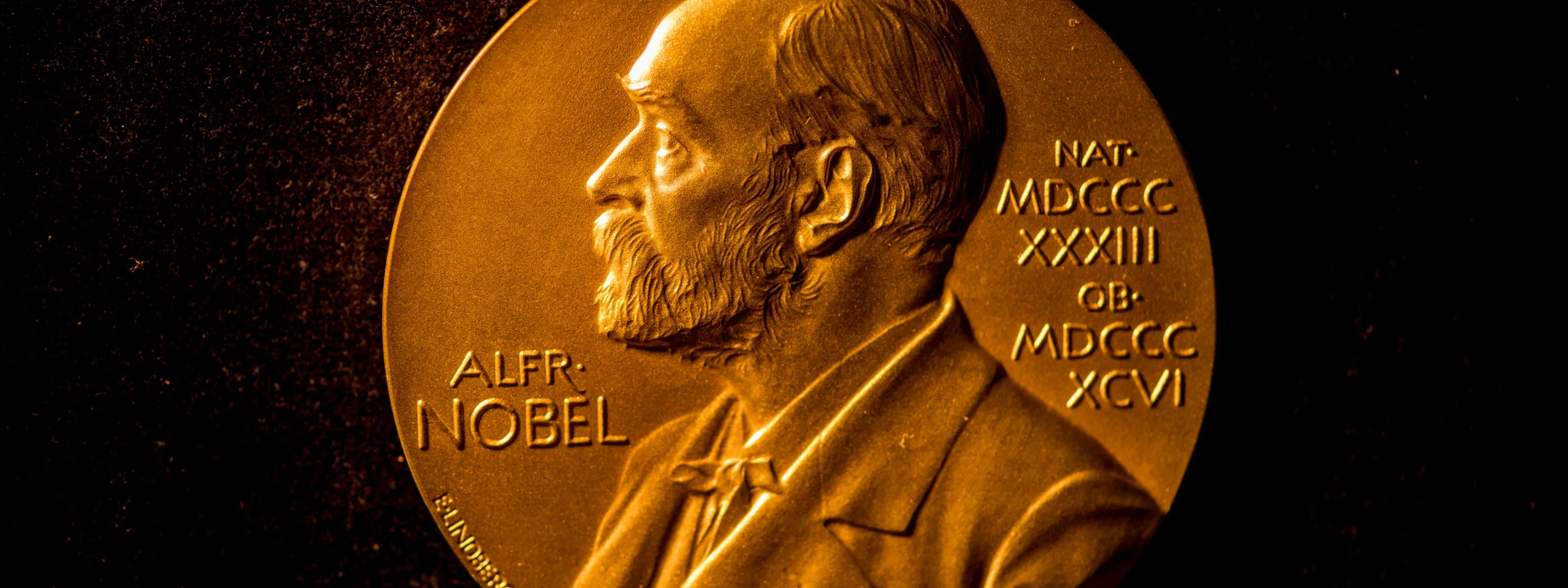In the year 1888, Alfred Nobel, the inventor of dynamite, stumbled on his obituary in a French newspaper. Apparently he had been mistaken for his brother, who had just died of haemorrhage. Troubled by the media’s scathing appraisal of his life, however, Alfred sought to create a positive legacy, writing a new will that would bequeath 94% of his fortune to anyone who bestows the “greatest benefit to mankind.”
The story of Alfred’s and the premature obituary is sometimes dismissed as a myth. Nevertheless, his will has helped to power the most coveted award globally—the Nobel Prize. Each year since 1901, the Nobel Prize has been awarded to recognise groundbreaking achievements by an individual or organisation across Physics, Chemistry, literature, Medicine and Peace. A Prize in Economic Sciences was later added to the roster, in 1969. In addition to a gold-plated medal, laureates, as the recipients are known, receive a diploma certificate and a monetary award of 11,000,000 Swedish Kronor ($1 million).
For Monday, two American biologists—Victor Ambros and Gary Ruvkun—were honoured with the 2024 Nobel Prize in physiology or medicine for their work on the discovery of microRNA, a molecule that governs how cells in the body function. The remaining Nobel Prizes will be awarded over the following days of the week.
Africa’s Place in the Nobel History
Africa’s journey with the Nobel Prize began in 1951 when South African writer Alan Paton was nominated for the Nobel Prize in Literature for his acclaimed novel, Cry, the Beloved Country. While Paton did not win, his work was a seminal moment in African literary engagement with global audiences. It wasn’t until 1960 that the first African laureate emerged in the form of Albert John Luthuli, a South African politician and anti-apartheid activist, who was awarded the Nobel Peace Prize for his non-violent struggle against racial discrimination.
Luthuli’s victory symbolised a significant moment not just for South Africa but for the African continent, bringing global attention to the injustices of apartheid. It also set the stage for other Africans to be recognised for their efforts towards peace, justice, and intellectual excellence. In the decades that followed, more Africans emerged as laureates, though Africa’s representation in the Nobel sphere remains disproportionately small given the continent’s contributions to global culture, science, and social justice.
Africans in Peace
Arguably, the most recognised area in which Africans have excelled within the Nobel framework is the Nobel Peace Prize category. Beyond Luthuli, several African leaders have been awarded for their tireless efforts to promote peace, democracy, and human rights in a continent often plagued by political instability, civil wars, and dictatorial regimes.
In 1984, South African Archbishop Desmond Tutu received the Peace Prize for his non-violent opposition to apartheid. His role as a moral beacon, particularly through the Truth and Reconciliation Commission, showcased the importance of forgiveness, healing, and moving forward, even in the wake of immense societal trauma.
Perhaps the most globally famous African Nobel Peace laureate is Nelson Mandela, who shared the award in 1993 with South African President F.W. de Klerk for their roles in dismantling apartheid and leading the country towards democratic rule. Mandela’s win transcended African borders, marking a universal moment of recognition for the struggle against oppression and the power of reconciliation.
In more recent years, the 2004 Peace Prize went to Kenyan environmental activist Wangari Maathai, the first African woman to receive a Nobel Prize. Maathai founded the Green Belt Movement, an environmental conservation and human rights organisation that played a pivotal role in promoting sustainable development and women’s empowerment.
Africans in Literature
Africans have had notable, though limited, representation in the Literature category. Nigerian author Wole Soyinka made history in 1986 as the first African laureate in literature. A playwright, poet and essayist, Soyinka’s works often confront political injustice and the human condition in post-colonial Africa. His win was not just a celebration of his individual talent but a recognition of African intellectualism and storytelling on the world stage.
More recently, in 2021, Tanzanian author Abdulrazak Gurnah won the Nobel Prize in Literature for his contributions to exploring themes of displacement, migration, and colonialism. Gurnah’s work delves into the complexities of identity, belonging, and the legacies of colonial rule, resonating deeply in a global context of rising nationalism and anti-immigrant sentiments.
The Sciences
Despite Africa’s achievements in Peace and Literature, the continent’s representation in the Nobel Prizes for the sciences—Physics, Chemistry, and Medicine—has been minimal. The reasons for this are deeply rooted in historical and systemic inequalities. Colonialism, which disrupted Africa’s educational systems, combined with ongoing underfunding in research and development, has left African scientists underrepresented on the global stage. While there are growing efforts to foster scientific innovation across the continent, the Nobel Prize remains an elusive goal for many African researchers.
Moreover, increased attention to African narratives, innovations, and voices suggests that the future may hold more Nobel laureates from the continent, especially as Africa’s academic, scientific, and cultural institutions strengthen and global interest in the region rises.
In 1888, Alfred Nobel mistakenly read his obituary in a newspaper and was disturbed by its negative portrayal. This led him to create a will dedicating 94% of his fortune to those contributing significantly to mankind, birthing the Nobel Prize. Since 1901, this prestigious award has recognized accomplishments in Physics, Chemistry, Literature, Medicine, and Peace, with a later addition in Economic Sciences. Winners receive a gold medal, a diploma, and a monetary award.
The Nobel Prize has historically seen limited African laureates. The first African Nobel Peace Prize winner was Albert John Luthuli in 1960 for his non-violent efforts against apartheid. Others like Desmond Tutu and Nelson Mandela have also been recognized for their peace efforts. In Literature, Wole Soyinka and Abdulrazak Gurnah have been notable laureates for their challenging and reflective works.
Africa's representation in the sciences, however, lags due to colonial legacies and underfunded research. Despite these challenges, there are growing efforts to foster innovation, suggesting the potential for increased future African laureate representation as academic and cultural institutions gain strength.






